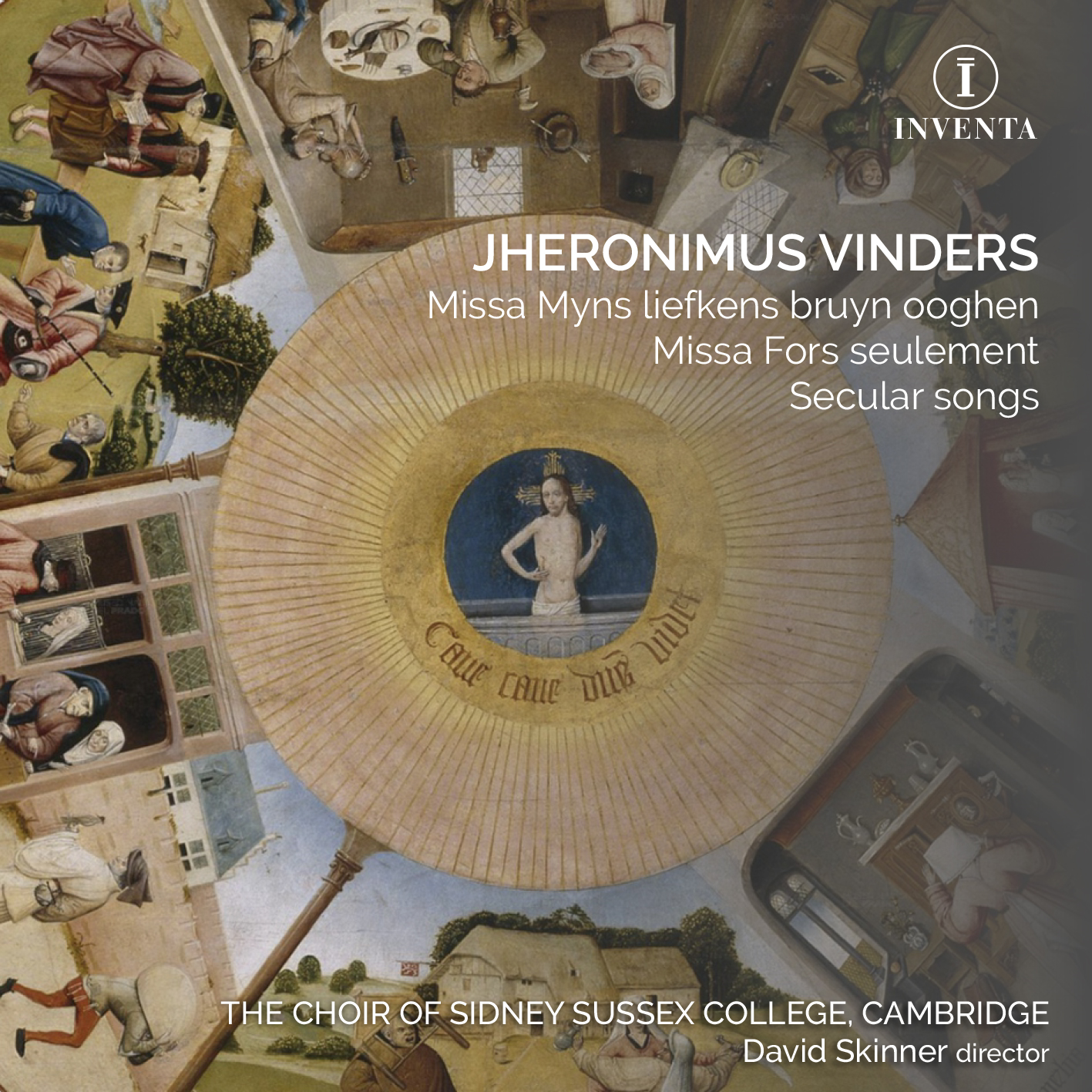A new collection by the Sidney Sussex College Choir is set to prompt fresh interest in a little-known figure of 16th century music.
The collection, which will be released on 23 June, is the first-ever recording devoted to the works of the Dutch composer Jheronimus Vinders and the polyphonic models that inspired him.
The project was conceived by Dr David Skinner, the Osborn Director of Music.
“Vinders comes from this rather grey area. We know he was Dutch. We know he was at Ghent Cathedral around 1525, 1526, but that’s it: we know nothing more about his life.
“The most famous composer in Europe at the time was Josquin des Prez, and every composer tried to emulate him. Vinders’s lament for Josquin, O mors inevitabilis, has led many to believe that Vinders was a disciple, or even a pupil, of this great master.”
Aside from his famous lament for Josquin, little was known of Vinders’ work, but then Dr Skinner met Dr Eric Jas, a musicologist based at the University of Utrecht. Dr Jas had just finished editing the lost composer’s complete works.
“Eric sent me the music and it was just glorious. I could not believe what I was looking at: it was weird, it was quirky, it was deliciously dark and austere. So I said, ‘Can we do this?’”
The new collection was recorded over five days in the chapel of Tanzenberg Castle, Austria. In addition to the Sidney Choir, it features Andrew Lawrence King playing the Renaissance Harp.
The collection also provides an historical insight into a period of rapid change in music. Dr Skinner: “With the Reformation, English choirs moved to singing in English, really overnight. All the Catholic beauty was thrown out and the music changed fundamentally, but on the Continent the approach to music was very different. The main change was in the choice of themes. So, rather than just writing a Mass for a Catholic setting, they would take a love song, or a song about war: very secular ideas. Then they would use that music as a model to build an entire Mass. A little song would turn into a sort of Renaissance symphony, based on those models. This was partly the reason for our evocative cover art, Hieronymus Bosch’s Seven Deadly Sins, where the eye of Christ is always watching those who misbehave: ‘cave, cave dominus videt!’”
“So what we have done with this collection is to record all the models that influenced the two masses, to show that juxtaposition of religious belief and secular ideals, at the same time.
“The collection starts with a solo played on a psaltery, which is a string instrument improvising the anonymous Dutch tune Myns liefkens bruyn ooghen (‘my beautiful girl's brown eyes’), and this is followed by a setting of that melody by Benedictus Appenzeller (b.c. 1480), featuring soloists Emily India Evans and Sophie Madden, and this in turn was set to the five movements of the Mass Ordinary by Vinders who develops the theme for some 40 minutes of composition.
“So, in those opening tracks, we are already drawing people into this 15th, 16th century soundworld. The psaltery is an instrument that would've been played in the pub or other secular settings; it’s not an instrument used in sacred music.
“It was common in that period to write what are called imitation Masses or parody Masses.
“So, Vinders was inspired by existing music to create what you might call an imitation or ‘parody’ Mass. It's very clever stuff and you end up, after listening to the entire Mass, with these earworms, because Vinders keeps returning to the same melodies, but with a fresh harmonic twist.”
Dr David Skinner is Fellow and Osborn Director of Music at Sidney Sussex College. He joined Sidney in 2006 and, through his work, he has brought the Choir to international attention, with tours across Europe, the United States, the Middle East and Southeast Asia.
The Choir’s collection of work by Thomas Tomkins, These Distracted Times, recorded with the acclaimed viol group Fretwork and Dr Skinner’s professional choir Alamire, received the Editor’s Choice and CD of the Month in Gramophone magazine. Their collection of work by Thomas Weelkes was nominated for a Gramophone Award.
The Sidney Sussex College Choir is the only college choir in Cambridge to sing a weekly Latin Vespers service, an excellent outlet for exploring Renaissance music, in addition to the usual Anglican Evensongs. A Choir, in some form, is thought to date back to the College’s founding in 1596.
The College also has a Composer-in-Residence, currently the American contemporary classical music composer and arranger Nico Muhly. Muhly has worked across a range of genres, including opera and world music, and collaborated with contemporary artists including Paul Simon, The National, Usher, Antony and the Johnsons, Villagers and Jónsi.
Previous Composers-in-Residence include Joanna Marsh and Eric Whitacre.
Jheronimus Vinders - Missa Fors Seulement & Secular Songs will be released by Inventa on 23 June. You can stream or download the recording now. CD copies can be pre-ordered on the Presto Music website.
If you have something that would make a good news or feature item, please email news@sid.cam.ac.uk

